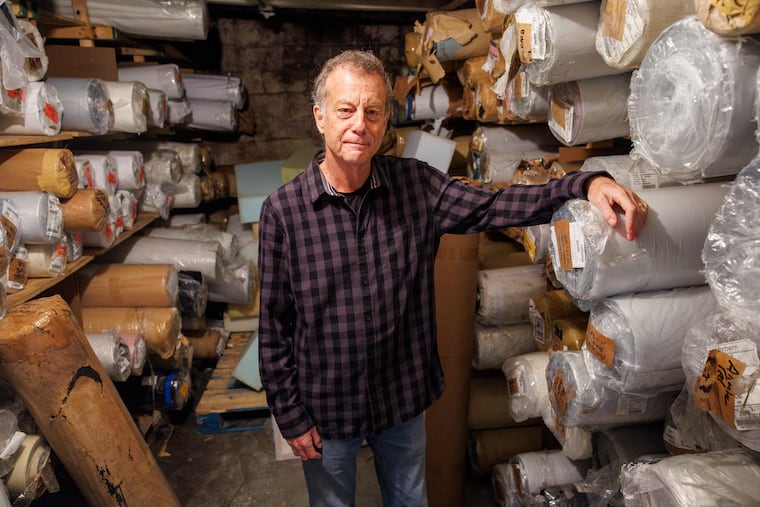Northern Liberties fabric store faces uncertainty over survival due to Trump-era tariffs on China after 100 years in business.
Howard Katz, a small business owner and the third-generation steward of Katz Leatherette Co., faces an uncertain future as he approaches a significant milestone. Originally anticipated as a year of celebration, 2025 now looms with concerns over the viability of his family’s decades-old enterprise, which has been a staple in Northern Liberties since its founding by Katz’s grandfather, Morris, nearly a century ago.
At 67, Katz grapples with the implications of President Donald Trump’s escalating trade war, which recently culminated in the imposition of a staggering 104% minimum tax on imports from China, the primary source for the materials his business relies on. This latest round of tariffs, introduced during a recent presidential address labeled “liberation day,” will severely impact small businesses like Katz’s which already face significant cost pressures. A letter from an importer highlighted that the total tariff rate on certain Chinese goods had surged to 79%, effectively increasing expenses that Katz will inevitably have to pass on to his customers.
The repercussions of these import taxes have forced Katz to confront the reality of rising prices. For instance, a 20-yard fabric order that previously cost 0 could now escalate to 0 due to these tariff surcharges. As a long-standing fixture in the fabric industry, Katz’s narrative underscores the broader challenges confronting small businesses across the United States—hefty tariffs, supply chain disruptions, and unpredictable costs linked to a series of trade policies that some financial analysts have characterized as the most considerable tax hike since 1968.
Katz’s business model, which includes supplying upholsterers with various materials, has undergone significant strain since the introduction of these tariffs, which are not limited to China but extend to other Asian suppliers, including Vietnam and Thailand. These tariffs have been implemented under the premise of correcting long-standing trade imbalances that have hindered American manufacturers. Trump’s administration contends that such measures will bolster U.S. industries by increasing the competitiveness of domestic products.
Katz is also well aware that while there may be some benefits to American-made products in certain industries, the reality is often different on the ground. American labor costs and a scarcity of skilled workers pose formidable barriers to reviving U.S. textile manufacturing. For instance, a fabric that retails for per yard from China is frequently priced out of reach when sourced from domestic producers, leaving Katz with limited options and forcing him to reconsider his supply chain strategies.
He maintains a significant inventory, which for now might sustain operations for a couple of months, but once resources dwindle, Katz predicts that he will need to make drastic decisions regarding his stock and product offerings. The market dynamics facing his store, now in its Fifth Street location since 1962, are emblematic of the larger economic uncertainties affecting countless small businesses across the nation.
As a business owner who has weathered economic downturns and fluctuations in the market, including the effects of the pandemic, Katz admits that the current trade policies present unprecedented challenges. With thoughts of retirement looming, he reflects on the need for resilience in an economically tumultuous environment, hoping for relief from the tariffs that have altered the fabric of his long-standing business legacy.
In an era marked by trade tensions and economic upheaval, Katz’s story serves as a poignant reminder of the individual struggles faced by small business owners across America, advocating for a more predictable and stable trading environment that fosters growth and sustainability.







